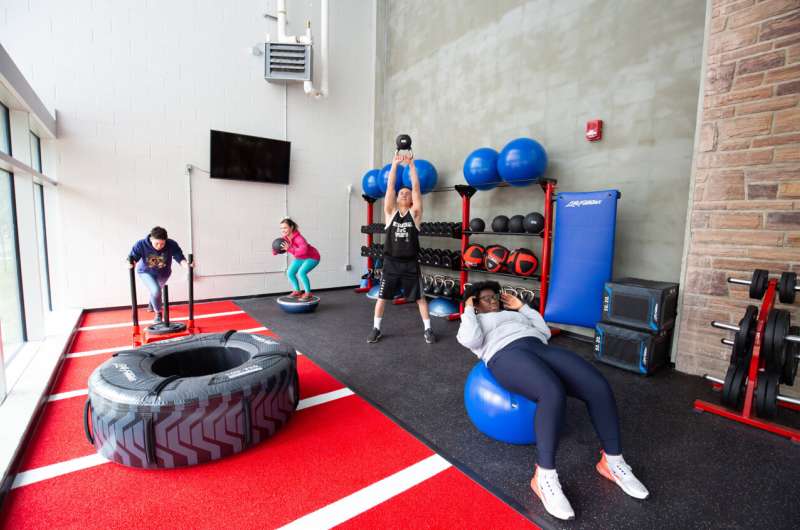This article has been reviewed according to Science X's editorial process and policies. Editors have highlighted the following attributes while ensuring the content's credibility:
fact-checked
peer-reviewed publication
trusted source
proofread
How fit is your gut microbiome? New research shows duration and not intensity of exercise is most important

Exercise has many benefits—strengthening muscles and bones, preventing disease and extending lifespan. It is also known to change the composition and activity of the trillions of microbes in our guts known as the microbiome.
It is well known that the microbiomes of athletes are different from those who are sedentary. This is not overly surprising according to the author and Ph.D. student Shrushti Shah. "Athletes are often lean and follow strict diet and training schedules—these factors alone can explain the different microbiomes of athletes," says Shah, a Kinesiology Ph.D. student specializing in Nutrition, Metabolism and Genetics.
To investigate how exercise shapes the gut microbiota in non-athletes, the study assessed information on the type, time and intensity of exercise in relation to microbiomes in a large cohort of middle-aged adults. Information on body weight, diet and hand-grip strength were also collected.
"Encouragingly, the study found that physical activity of moderate duration (≥150 minutes per week) increased both the richness and diversity of the gut microbiomes compared to study participants that exercised less," says Jane Shearer, Ph.D., a professor in the Faculty of Kinesiology and the Cumming School Medicine. "Given this, more exercise appears to be important in improving microbiome health and individuals should aim to meet the Health Canada recommended 150 min of moderate-intensity physical activity per week."
When exercise intensity was examined, results showed that how long a person exercised was more important than how hard they exercised during each workout in improving microbes in the gut. Reasons for this are not known and are a topic of future work in the laboratory.
The study also showed that changes in the microbiome were not the same between different groups of individuals. The most beneficial changes were seen in those individuals of normal weight compared to those who were overweight. According to study investigator Dr. Chunlong Mu, Ph.D., a postdoctoral associate in Kinesiology, this is because "being overweight exerts its own influences on the gut microbiome independently of exercise. In this case, poor dietary habits outweigh some of the beneficial influences of exercise on the gut microbes."
With this in mind, the best advice appears not only to exercise more, but also take steps to maintain a healthy weight to achieve a healthy and optimally functioning gut microbiome.
More information: Shrushti Shah et al, Physical activity‐induced alterations of the gut microbiota are BMI dependent, The FASEB Journal (2023). DOI: 10.1096/fj.202201571R




















